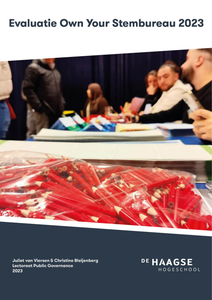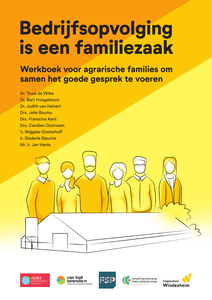A.General description on research questions, objectives, and theoretical framework.Research suggests that teachers and parents might be better equipped to tackle school bullying when they collaborate (Axford et al., 2015; Gaffney et al., 2021; Huang et al., 2019). Despite the various efforts to secure family-school partnerships, parents’ involvement in schools’ antibullying interventions remains limited (Gaffney et al., 2021).Motivated to improve their family-school anti-bullying collaboration, three Dutch primary school communities took part in a participatory action research (Brydon‐Miller & Maguire, 2009) project. From 2019-2021, educational professionals and parents worked together supported by researchers, to pinpoint areas for improvement, and develop targeted solutions for their schools. The applied approach was similar to ‘action teams for partnership’ (Epstein, 2018), which has been argued to increase parent engagement to attain schools’ development goals. In this study, we evaluated the project with participating parents, educational professionals, and researchers, to discover how they reflect on the process and its outcomes. Our aim was to find out whether (and how) the participatory action research approach helped school communities to work towards family-school partnership to tackle bullying. B.Methods/methodologySemi-structured interviews were conducted with participating parents (n=3/5), educational professionals (n=7/10) and researchers (n=3/3), through video calls which were recorded and transcribed. Content analysis was conducted to gain insight in participants’ experiences in the collaborative process of conducting research and designing solutions, and the perceived outcomes for themselves and their school.C.Expected outcome/resultsIn this contribution, we critically reflect on our participatory action research approach, aiming to offer some guidance to community members and researchers looking to conduct similar studies. Overall, participants valued the collaborative process, and mentioned beneficial outcomes for themselves and/or their schools. Evaluations of the developed solutions, however, were mixed. Participants’ experiences were mainly related to alignment of interests and goals, group and community building, and exchange and coordination, as well as school- and contextual factors. While securing long lasting change remains challenging, participatory action research seems to be a fruitful approach to work towards family-school partnership.D.ReferencesAxford, N., Farrington, D. P., Clarkson, S., Bjornstad, G. J., Wrigley, Z., & Hutchings, J. (2015). Involving parents in school-based programmes to prevent and reduce bullying: What effect does it have? Journal of Children’s Services, 10(3), 242–251. https://doi.org/10/gk4fqzBrydon‐Miller, M., & Maguire, P. (2009). Participatory action research: Contributions to the development of practitioner inquiry in education. Educational Action Research, 17(1), 79–93. https://doi.org/10/dqbbn3Epstein, J. L. (2018). School, family, and community partnerships: Preparing educators and improving schools. Routledge.Gaffney, H., Ttofi, M. M., & Farrington, D. P. (2021). What works in anti-bullying programs? Analysis of effective intervention components. Journal of School Psychology, 85, 37–56. https://doi.org/10/gh24fpHuang, Y., Espelage, D. L., Polanin, J. R., & Hong, J. S. (2019). A Meta-analytic Review of School-Based Anti-bullying Programs with a Parent Component. International Journal of Bullying Prevention, 1(1). https://doi.org/10/gjhzqj
DOCUMENT

Het project ‘Own your stembureau’ is een initiatief van Bureau Verkiezingen in reactie op zorgen over de lage opkomst onder jongeren bij verkiezingen. Het project heeft als doel om jongeren te betrekken bij het stemproces en de verkiezingen, in het brede kader van leren van ervaringen over opkomst-verhogende maatregelen. In het project bereidt een groep jongeren zich voor op het inrichten en bemensen van een stembureau, waarbij zich deels eigenaarschap krijgen over het stembureau. Het resultaat is dat op de verkiezingen van 15 maart 2023 drie stembureaus zijn gerund door jongeren en hun begeleiders. Het gaat om stembureaus in Theater de Vaillant, het Roemer Visscher College en Cultuurpodium PiP. In dit rapport leest u de bevindingen van het onderzoek naar ‘Own Your Stamburaeau’ een interventie bedoeld om de betrokkenheid van jongeren bij de politiek te vergroten. Het onderzoek heeft twee doelstellingen: 1) inzicht geven in de resultaten van het project; vergroten van betrokkenheid van jongeren bij het stemproces en verkiezingen en 2) bijdragen aan het leren over het vergroten van de betrokkenheid en de opkomst van jongeren bij verkiezingen.
DOCUMENT

De opkomst bij de gemeenteraadsverkiezingen van maart 2022 in Nederland was historisch laag. In Den Haag lag de opkomst op 43 procent. Het opkomstpercentage verschilde sterk tussen wijken. Voor dit onderzoek zoomen we in op vijf wijken: Bouwlust en Vrederust; Laakkwartier en Spoorwijk (beide met een opkomst onder de 30 procent); Mariahoeve en Marlot; Staten- en Geuzenkwartier (opkomst rond het stedelijk gemiddelde) en de Vogelwijk (met 77 procent een relatief hoge opkomst). Doel en vraagstelling Het doel van het onderzoek is inzicht bieden in de beweegredenen van stemmers en niet-stemmers in verschillende wijken en het bieden van handelingsperspectieven voor de gemeenteraad, het college en de gemeentelijke organisatie. De drie hoofdvragen van het onderzoek zijn: - Wat zijn de motieven van stemmers en niet-stemmers? - Hoe kunnen we verschillen verklaren tussen wijken en groepen bewoners? - Welke handelingsperspectieven kunnen worden ontwikkeld, zowel voor het bevorderen van de opkomst als het vergroten van de betrokkenheid van bewoners bij de gemeentepolitiek?
DOCUMENT

In het superdiverse Rotterdam-Zuid biedt de religieuze inspiratie van sociaal werkers van House of Hope net dat beetje extra’s voor vele hulpvragers van alle gezindten. Oude tijden van buurtpastoraat en diaconie lijken te herleven, maar dan wel in een nieuw jasje.
LINK
Een literatuurstudie naar het versterken van informele en formele verbindingen rondom jeugdigen en gezinnen in de specialistische hulpverlening. Wat is er internationaal en nationaal bekend over het versterken van de samenwerking tussen het informele en formele netwerk? Deze vraag heeft centraal gestaan. In deze literatuurstudie staat beschreven welke kenmerken jeugdigen belangrijk vinden in de relatie met hun sociaal werker en andere belangrijke volwassenen. Ook worden er verschillende netwerkbenaderingen beschreven, waaronder de JIM-aanpak. In de conclusie worden er handelingsalternatieven geboden voor de professional. Deze literatuurstudie dient als vooronderzoek voor een praktijkonderzoek waarin er met een dossieranalyse wordt gekeken naar de mate waarin professionals het netwerk van jeugdigen en gezinnen optimaal benutten.
DOCUMENT

Dit rapport gaat over hoe formele en informele politieke participatie van adolescenten en jongvolwassenen (16-27 jaar) in Amsterdam Noord, Nieuw-West en Zuidoost zich verhouden tot participatieve ongelijkheid in de stad. We stellen ons in dit rapport de vraag welke rol lokale (zelf)organisaties, bewonersinitiatieven en jongerenplatforms kunnen spelen in het bestrijden van participatieve ongelijkheid. Om de vraag te kunnen beantwoorden in hoeverre praktijken van politieke participatie ook daadwerkelijk leiden tot meer invloed van jongeren op politieke besluitvorming maken we gebruik van het concept ‘linking sociaal kapitaal’. We hebben ons specifiek gericht op groepen jongeren tussen de zestien en zevenentwintig jaar voor wie de opkomstcijfers laag zijn. Welke ervaringen hebben zij met participatie en hoe verhouden hun ervaringen zich tot de ervaringen en verwachtingen van politici, bestuurders en beleidsmakers? Wie speelt een rol in het verbinden van jongeren aan overheidsinstellingen en hoe gaan deze sleutelfiguren te werk? Hoe verlopen ontmoetingen tussen jongeren en representanten van de overheid, en in hoeverre lukt het initiatieven die (in)formele participatie van jongeren willen versterken om hun invloed te vergroten? Dit onderzoek is tot stand gekomen met behulp van financiering door Het Kenniscentrum Ongelijkheid. Onderzoekers: Sietske Zweegman, Femke Kaulingfreks, Floris Vermeulen, Sharifah Redan, Zulia Rosalina, Elena Ponzoni, met medewerking van Charissa Leiwakabessy, Reyhan Bencan en Malisa Agyeiwaa
DOCUMENT

Er kunnen allerlei 'partijen' belanghebbend zijn, afhankelijk van het thema van een praktijkonderzoek. Direct bij de eerste verkenning van het probleem is het belangrijk om na te denken wie de mogelijke betrokkenen zijn: wie maken deel uit van het probleem, wie zouden een bijdrage kunnen leveren aan het beter begrijpen en een betere aanpak, voor wie heeft het onderzoek mogelijk consequenties? Vaak zijn dat allereerst de leerlingen, collega's, leidinggevenden, soms ook ouders, misschien ook de wijkagent of maatschappelijk werkster. In dit hoofdstuk wordt aan de hand van voorbeelden besproken over welke betrokkenen het zoal kan gaan en hoe je deze een stem geeft in de loop van het praktijkonderzoek.
DOCUMENT
Deze publicatie over de vroege fase van bedrijfsopvolging in familiebedrijven laat zien dat de intentie van een volgende generatie om al dan niet het bedrijf over te nemen zich al op jonge leeftijd ontwikkelt. Ouders oefenen invloed uit op de ontwikkeling van hun kinderen door (on)bewust gebruik te maken van sociale mechanismen, waardoor de emotionele betrokkenheid van het kind in meer of mindere mate kan worden gestimuleerd. Daarbij worden er verschillende vormen van planning gebruikt voor het bedrijfsopvolgingsproces; zowel formele als intuïtieve planning. Voor ouders blijft het een dilemma om een evenwicht te vinden in het stimuleren van de individuele belangen en behoeften van hun kinderen, de belangen van het gezin en de belangen van het bedrijf. Met deze publicatie hopen wij ondernemende families handvatten te geven om op een nieuwe, andere manier naar de opvolging te kijken.
DOCUMENT

Een agrarische bedrijfsopvolging is niet alleen een juridische, fiscale en financiële zaak, maar ook (en bovenal) een familiale zaak waarbij emotionele binding en betrokkenheid een rol spelen. Bij advies wordt vaak vooral gedacht aan de ‘harde’ zakelijke kant, maar dit werkboek heeft als doel om families te ondersteunen én sterker en zelfredzamer te maken, juist op de ‘zachte’ kant waarin het gaat om sociale en emotionele verhoudingen.
DOCUMENT

Een agrarische bedrijfsopvolging is niet alleen een juridische, fiscale en financiële zaak, maar ook (en bovenal) een familiale zaak waarbij emotionele binding en betrokkenheid een rol spelen. Bij advies wordt vaak vooral gedacht aan de ‘harde’ zakelijke kant, maar dit werkboek heeft als doel om families te ondersteunen én sterker en zelfredzamer te maken, juist op de ‘zachte’ kant waarin het gaat om sociale en emotionele verhoudingen.
DOCUMENT
